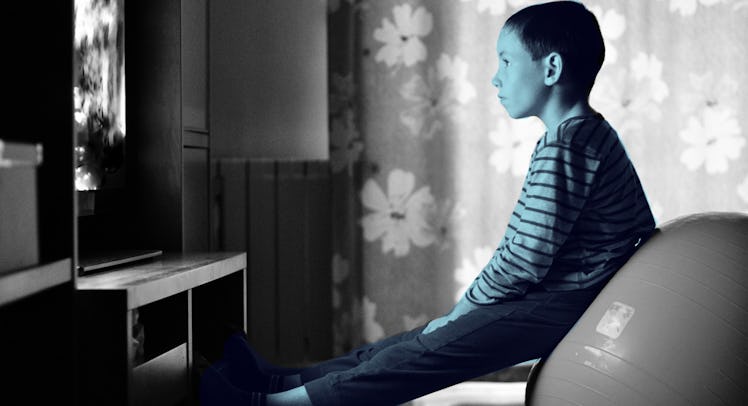How to Get an Obsessed Kid to Stop Watching, Doing, or Reading the Same Damn Thing
Kids benefit from repetitive media behaviors, but if a parent really wants them to change, they’ll have to be prepared for a game of chicken.

Children naturally develop obsessions with books, songs, shows, or characters. So much so, that the motto for childhood should be “Can’t stop. Won’t stop.” That phrase best reflects the urges that make letting go of “Let it Go” a near impossibility for many kids. Subsequently, many parents feel close to a mental breakdown after reading the same Ninjago book for a week of bedtimes. But, frankly, that’s just part of raising a kid. And those who want to stop an obsession would do best to understand how repetition benefits their kid before launching into the game of chicken required to force a change.
“Repetition is developmentally appropriate and even necessary for kids’ brain development,” explains family and marriage therapist Bette Alkazian. The necessity is due to the way that a brain is constantly restructuring itself as a child grows and learns. “When those books and songs are repeated over and over, kids figure out where to file this new knowledge in their brains.”
Repetition is literally building brain synapses and reinforcing information pathways. What parents don’t realize as they despondently launch into The Lorax again is that their kid is developing language and reading skills as they’re exposed once more to the rhymes, plot, and characters.
“This can be very frustrating for parents, but it is my hope that a deeper understanding of what is happening from a child development perspective may make it that much more tolerable for parents,” Alkazian says.
But cognition isn’t the only boost a child is getting from their obsession. They’re also getting a good dose of comfort. “For children, it can be a lonely time,” explains William Paterson University education and developmental psychology professor Dr. Cynthia Northington-Purdie. “Every now and then you come across something with a character that you can relate to. Even the color palette is appealing. It’s a friend.”
Northington-Purdie notes that this concept shouldn’t feel that foreign to adults. After all, grown-ups obsess over songs and find joy in repeating lines from movies too. It’s also not uncommon for adults to re-read favorite books. “Some things are just comforting to have,” she says.
How to Understand or Decrease Repetitive Childhood Behaviors
- Know that a kid is actually getting cognitive development benefits by being exposed to the same books, songs, or shows again and again.
- A child also finds comfort in familiar characters that they can relate too, which eases some childhood loneliness.
- To introduce your child to a more diverse range of books, songs, or shows, think about what kinds of characters your child might relate to and what kinds of stories link to their own life.
- To extinguish a deep interest in some particular media, parents can feign deep interest and excitement over the book song or show while oversaturating the child in hopes that they’ll grow tired of it.
That said, parents do need to be cognizant of their own self-care. Feeling perturbed is not a great place to parent from. There are ways that parents can help move a kid to something new. But it should never begin by telling them to stop engaging in their obsession.
“You’re giving them control then,” says Northington-Purdie. “Because there’s something they know they’re doing that’s pushing your buttons. It’s not malicious, but it does give them a certain level of power when you say, ‘Uncle, I can’t take this anymore.’”
The better move is to find something else that a kid can connect with. Parents should look for books, songs, or shows that their kid can see themselves in or reflects their life and likes in some way. The problem, of course, is that this just might create a new obsession. But Northington-Purdie does note that there is a nuclear option for ending repetitive behavior. It’s essentially a game of enthusiasm chicken. “Feign fascination,” she says. “Suddenly it’s not cool anymore. If the goal is to get them to stop doing something, just bombard them with it.”
In the end, managing a child’s obsessions are a matter of a parent managing their own expectations. After all, Northington-Purdie notes, “Kids will just be kids.”
This article was originally published on